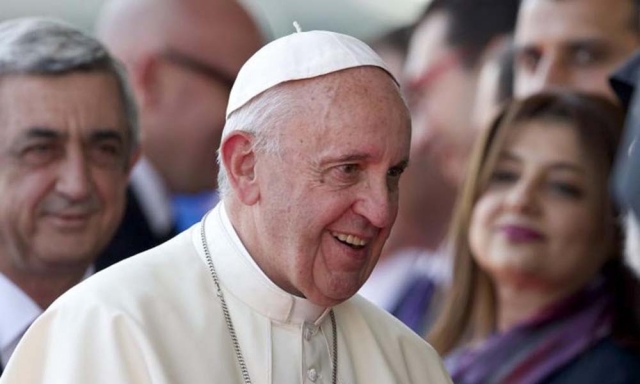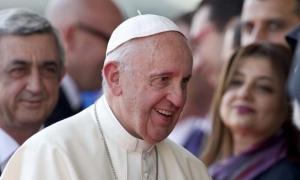Vatican Releases Details of Pope’s September Visit to Georgia
VATICAN CITY – The press office of the Holy See on Tuesday morning released details of Pope Francis’ September 30-October 2 visit to the small South Caucasus republic of Georgia.
Pope Francis is scheduled to meet Georgian President Giorgi Margvelashvili as well as other Georgian authorities, civil society members and members of the nation’s diplomatic corps immediately after arriving from the Vatican on September 30.
The second day of the visit will feature Pope Francis hold a liturgy at the Mikheil Meskhi Stadium in Tbilisi’s upscale Vake district before leaving for Georgia’s ancient capital and UNESCO World Heritage Site Mtskheta to visit the city’s 11th century Svetitskhoveli Cathedral and 6th century Jvari Monastery.
According to Georgian tradition, Jvari is the location where 4th-century female evangelist Saint Nino converted King Mirian II to Orthodox Christianity.
Pope Francis will conclude his trip to Georgia on October 2 before carrying on to the Azeri capital Baku.
Francis’ visit will be the second time a pope has visited Georgia. Pope John Paul II first visited the former Soviet republic in 1999.
According to Georgia’s 2014 census, about 30,000 Catholics currently live in the country, less than 0.8 per cent of the total population of 3.7 million. The overwhelming majority of the population is comprised of Roman Catholics who live in the southern part of the country and Tbilisi, where Catholicism first took hold in the 11th-13th centuries.
The Pope’s visit comes at a particular critical period, as the Vatican has attempted to establish closer ties to the various churches making up the Orthodox branch of Christianity.
Georgian Orthodox Patriarch Ilia II has in the past opposed closer cooperation with the Vatican, as his rhetoric towards the main Western branches of Christianity has grown more critical.
The Georgian church has actively drawn closer to the Moscow Patriarchate in recent years, including a joint declaration by the churches rejecting a statement from other Orthodox Churches that called for better relations and cooperation with their Catholic and Protestant counterparts.
By Nicholas Waller












